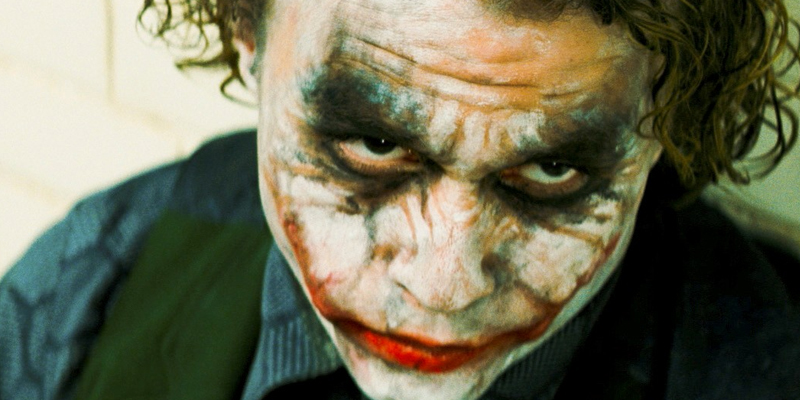Was just on a panel about villains at Denver ComicCon—actually, my second villains-panel there—and then, just now, I went all the long way down to Alamo Drafthouse to see Footloose on the big screen for the first time in thirty-two years, then listened to the Sir Patrick Stewart episode of The Nerdist on the way back, and . . . it all left me thinking, I guess. About antagonists, and the building of them.
It’s Robert McKee who says that, when designing up your story, you always start with the antagonist, right? The antagonist is pretty much the measure of the protagonist, as that’s who the protagonist has to overcome in some fashion, be it swords or brains or dancing or whatever.
It makes perfect sense. Also, it works against our storytelling instincts, which are always to some degree role-playing-game instincts . . . kind of, wish-fulfillment, as I see it: I’m going to have a bad Harley and this long shampoo-commercial hair and I’m going to know all these fighting styles and also I’m going to cry about cute kittens and I’m always going to have killer lines and I’m going to be an outlaw but have a heart of gold and I’ll be able to use any weapon pretty much and never run out of gas, and and and:
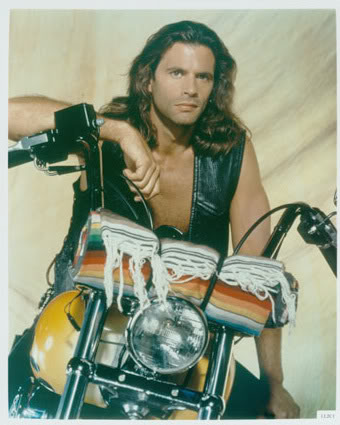
First? There’s nothing wrong with that. I’m the last person to bad-talk RPG, I hope, and the only reason I know so much about Renegade is because it’s still my secret bible.
What I’m trying to get at, though, it’s that that’s our first instinct: to have the baddest sword in the land. Then the story just becomes finding someone or something to use it on.
While honest in conception, if maybe a little more revealing than we might want, that doesn’t lead to the best storytelling, I don’t think. Not the kind others can participate in, anyway. And storytelling, that’s always got to be the first concern: how to get the reader involved.
Answer—or, one answer: situate your protagonist such that the  antagonist she must overcome or defeat or escape or whatever, that antagonist is some ten percent ‘better,’ however ‘better’ is measured in the world of your story. That A) makes your antagonist an underdog, of course, and we all love Rocky stories, and B) that insures constant tension, as there’s going to be lost battle after lost battle, until the war is finally decided.
antagonist she must overcome or defeat or escape or whatever, that antagonist is some ten percent ‘better,’ however ‘better’ is measured in the world of your story. That A) makes your antagonist an underdog, of course, and we all love Rocky stories, and B) that insures constant tension, as there’s going to be lost battle after lost battle, until the war is finally decided.
Which—I keep using fighting metaphors, I know. But, I mean, this protagonist/antagonist struggle, it does all come down to conflict, yes? Which doesn’t have to be solved with the various forms of fisticuffs we know and love (from literal punching to telepathy to spycraft to social leveraging to science-Q, and on and on)—as Neil Gaiman showed us all with Black Orchid—but if we do keep talking about it in terms of literal physical conflict, then things hold together fairly well, anyway.
None of which is where I meant to be taking all this.
All I really meant to do sketch out a suspicion. It involves these three seminal works:
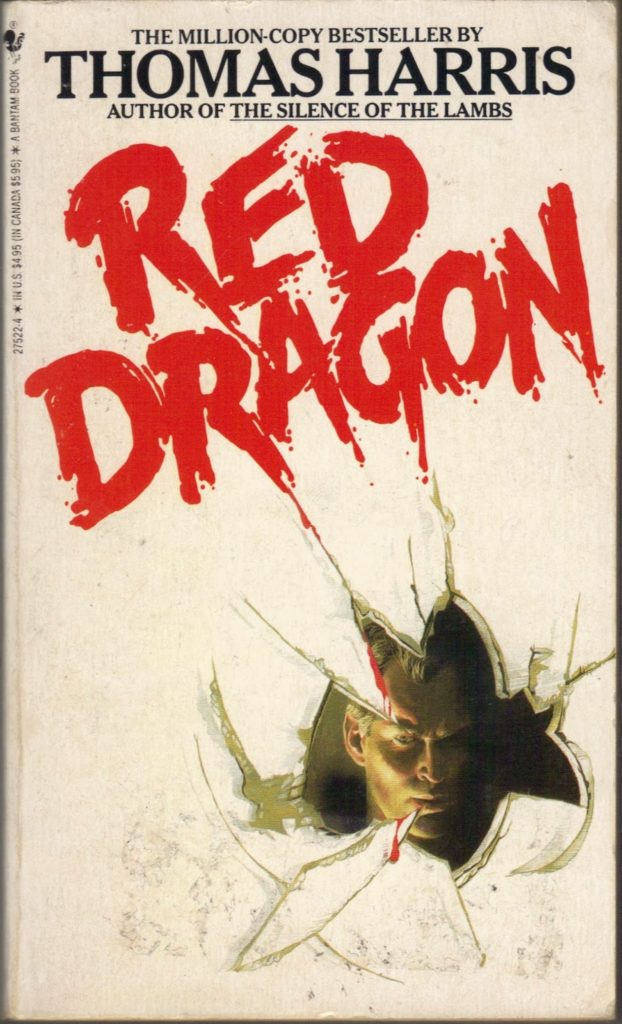
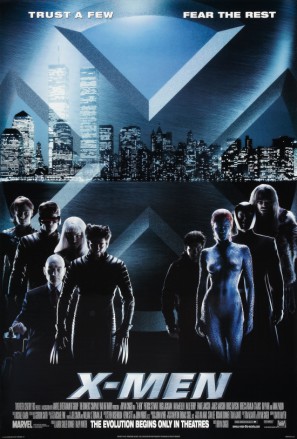
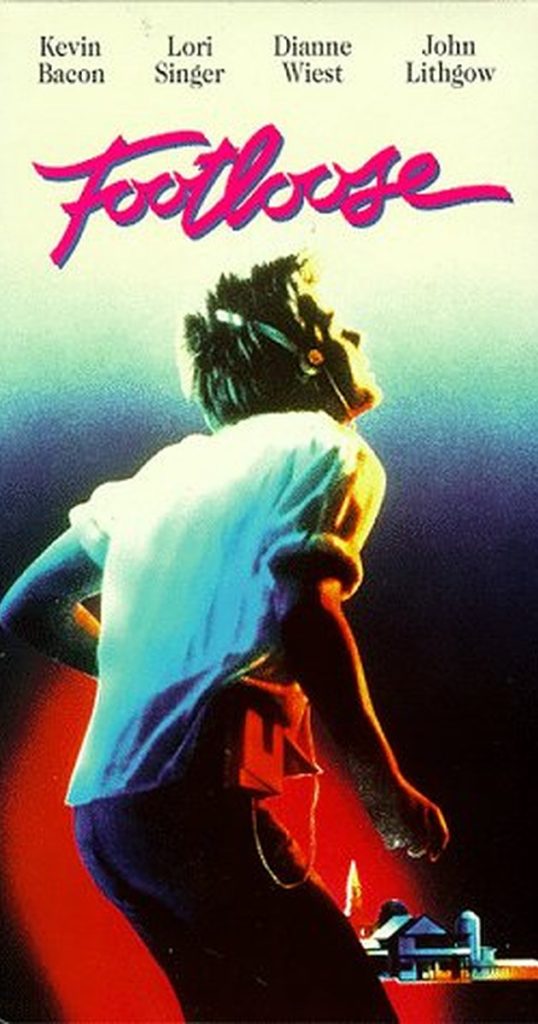
(if I were carefuler, I’d have searched up three images with the same dimensions, sorry. avert your eyes, if you must)
And, that’s the order I mean. Kind of a spectrum, a series of stepping stones through three genres: thriller, superhero, and musical. Storytelling’s the same no matter how you dress it up, though. Hopefully I don’t need to argue that.
Anyway, my argument, which I figure’ll get me in hot water with some true believer, is that Red Dragon builds its antagonist wrong, while Footloose does it right. Leaving X-Men like a missing link between them . . . sort of okay, sort of not.
Here it is:
- Francis Dolarhyde is cooler than cool, badder than bad, nearly Lecter-level perfection, as far as antagonists go. Except.
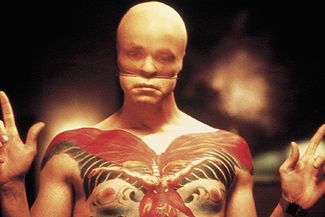 Remember that long stretch where he gets a backstory? Where we have to go back into his childhood, and understand that he was made into this killer he now is? Where we understand that he’s just another victim? What that does, as far as I’m concerned, is water things down—it leaves us with no real bad guy. Which may in fact be why Lecter was trucked in on a dolly, yes? I’m not at all saying Red Dragon is a broken novel. I think I prefer it over Silence, really (though I of course prefer the Silence movie over either Red Dragon adaptation). I’m saying that there’s some necessary antagonist-shuffling, once the killer who’s actually in the top-level dramatic line loses his mojo, becomes just another in a long line of vics. And? I know, I know, people are ALWAYS saying how the direct path to a good bad guy is to give that bad guy a real and deep backstory. It makes sense, yes? Sure, 3-D characters are probably going to result in better stories than cardboard cut-out characters. Of course, of course, why are you even saying this? What I propose, though, it’s that sometimes that depth, that dimensionality, yes, it makes the bad guy “real,” which feels it like real writing, like careful and intentional storycrafting . . . except it’s so often at the expense of the story. What a story needs, it’s to swing back and forth between the ‘good’ and the ‘bad.’ Once you re-code the bad as actually not that bad, then that can leave the reader just kind of lost in the middle, in the muddle. At which point they put your story down. At which point, you lose.
Remember that long stretch where he gets a backstory? Where we have to go back into his childhood, and understand that he was made into this killer he now is? Where we understand that he’s just another victim? What that does, as far as I’m concerned, is water things down—it leaves us with no real bad guy. Which may in fact be why Lecter was trucked in on a dolly, yes? I’m not at all saying Red Dragon is a broken novel. I think I prefer it over Silence, really (though I of course prefer the Silence movie over either Red Dragon adaptation). I’m saying that there’s some necessary antagonist-shuffling, once the killer who’s actually in the top-level dramatic line loses his mojo, becomes just another in a long line of vics. And? I know, I know, people are ALWAYS saying how the direct path to a good bad guy is to give that bad guy a real and deep backstory. It makes sense, yes? Sure, 3-D characters are probably going to result in better stories than cardboard cut-out characters. Of course, of course, why are you even saying this? What I propose, though, it’s that sometimes that depth, that dimensionality, yes, it makes the bad guy “real,” which feels it like real writing, like careful and intentional storycrafting . . . except it’s so often at the expense of the story. What a story needs, it’s to swing back and forth between the ‘good’ and the ‘bad.’ Once you re-code the bad as actually not that bad, then that can leave the reader just kind of lost in the middle, in the muddle. At which point they put your story down. At which point, you lose. - John Lithgow’s Reverend Shaw Moore in Footloose, however—the main antagonist (Chuck, Ariel’s initial boyfriend, is kind of Moore for us, if Moore could punch a high schooler)—note how
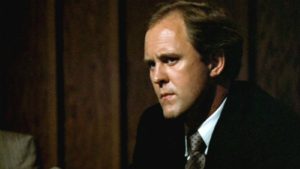 he also has a backstory, which also turns him into a victim of sorts: his son died, coming home from a honky tonk across the state line. That’s the wound festering inside him, that he’s curled around defensively, that’s left him clawing at anything and everything that might have allowed that to happen. Including Ren, the protagonist. However—and this isn’t just a difference between novels and movies, as each can do anything the other does—whereas in Red Dragon we got dragged into Dolarhyde’s terrible and painful childhood, as if Harris thought it would only impact us emotionally if he went to great lengths to make it real, to give it detail, in Footloose, all we hear about Moore’s son dying, we hear it indirectly. Yes, it changes our understanding of Moore drastically. We now understand he’s not necessarily evil, he’s just . . . he’s like that dad in The Croods, yes? He wants to keep his family safe. Just, his family is the whole town. That’s his job. But that delicate, brilliant touch that keeps him from becoming a victim as in Red Dragon, it’s A) just glancing off the story of the initial wound, just paraphrasing it, and B) delivering it through someone else. They’re each so, so important. They don’t paint Moore as a victim. He’s not claiming that wound, not using it as a defense or an explanation. He’s just a guy who is reacting poorly to that wound. He’s keeping the wound open by overtending it. Which is resulting in what counts for ‘evil’ in the world of Footloose: no dancing.
he also has a backstory, which also turns him into a victim of sorts: his son died, coming home from a honky tonk across the state line. That’s the wound festering inside him, that he’s curled around defensively, that’s left him clawing at anything and everything that might have allowed that to happen. Including Ren, the protagonist. However—and this isn’t just a difference between novels and movies, as each can do anything the other does—whereas in Red Dragon we got dragged into Dolarhyde’s terrible and painful childhood, as if Harris thought it would only impact us emotionally if he went to great lengths to make it real, to give it detail, in Footloose, all we hear about Moore’s son dying, we hear it indirectly. Yes, it changes our understanding of Moore drastically. We now understand he’s not necessarily evil, he’s just . . . he’s like that dad in The Croods, yes? He wants to keep his family safe. Just, his family is the whole town. That’s his job. But that delicate, brilliant touch that keeps him from becoming a victim as in Red Dragon, it’s A) just glancing off the story of the initial wound, just paraphrasing it, and B) delivering it through someone else. They’re each so, so important. They don’t paint Moore as a victim. He’s not claiming that wound, not using it as a defense or an explanation. He’s just a guy who is reacting poorly to that wound. He’s keeping the wound open by overtending it. Which is resulting in what counts for ‘evil’ in the world of Footloose: no dancing. - Magneto. To mention the missing link last. But I think it makes more sense that way. And I’m using the movie not the comic book because I honestly can’t remember when and where
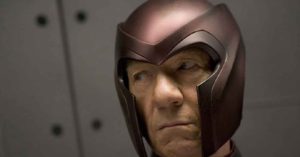 Magneto gets his concentration-camp backstory. The movie version‘s the one most of us remember now, I suspect. Anyway, this opening scene, of kid-Maggie having his parents taken away, and right then coming into his powers, yes, it inextricably links those two, which comes to form Magneto’s character, and, yes, it’s also quite arguable that he’s not even really the antagonist of this story. I cop to both, definitely, and I also cue on the cool trick where this sets up the whole mutants/non-mutants (cats/maus) theme the story will work through for the next couple hours. However, what I’m interested in, it’s how A) this is brief, but not Footloose-brief, and how it’s B) long, but nowhere near Red Dragon-long. Yet it still completely informs Magneto’s eventual character. And, more importantly—like Footloose—it doesn’t insist upon Magneto becoming a bad guy. With Dolarhyde, what other choice does he have, really, right? Reverend Moore, though, if he could rise above his own pain for a moment (easier said than done, yes), then he’d see that his actions aren’t really fixing anything. Same with Magneto: he doesn’t HAVE to become the bad guy. He elects to become the bad guy. Which . . . I think it was Jade Goodnaugh said this, on a Monsters panel I was on (also at DCC. this is all still fresh in my head). And she was right, I think: bad guys who can only be bad guys, they’re not nearly as interesting as bad guys who could just as easily have been good guys. Inversely, that’s likely why cops who are always toeing the bad-guy line—Martin Riggs, anyone?—are always more interesting.
Magneto gets his concentration-camp backstory. The movie version‘s the one most of us remember now, I suspect. Anyway, this opening scene, of kid-Maggie having his parents taken away, and right then coming into his powers, yes, it inextricably links those two, which comes to form Magneto’s character, and, yes, it’s also quite arguable that he’s not even really the antagonist of this story. I cop to both, definitely, and I also cue on the cool trick where this sets up the whole mutants/non-mutants (cats/maus) theme the story will work through for the next couple hours. However, what I’m interested in, it’s how A) this is brief, but not Footloose-brief, and how it’s B) long, but nowhere near Red Dragon-long. Yet it still completely informs Magneto’s eventual character. And, more importantly—like Footloose—it doesn’t insist upon Magneto becoming a bad guy. With Dolarhyde, what other choice does he have, really, right? Reverend Moore, though, if he could rise above his own pain for a moment (easier said than done, yes), then he’d see that his actions aren’t really fixing anything. Same with Magneto: he doesn’t HAVE to become the bad guy. He elects to become the bad guy. Which . . . I think it was Jade Goodnaugh said this, on a Monsters panel I was on (also at DCC. this is all still fresh in my head). And she was right, I think: bad guys who can only be bad guys, they’re not nearly as interesting as bad guys who could just as easily have been good guys. Inversely, that’s likely why cops who are always toeing the bad-guy line—Martin Riggs, anyone?—are always more interesting.
So, the lesson I take from this, anyway, it’s—well, first, it’s, yes, let your antagonist be real and round and have depth. But not enough that she or he or it or whatever becomes a victim, as that removes the ‘forces of evil’ that stories always need, no matter how literary they claim to be. 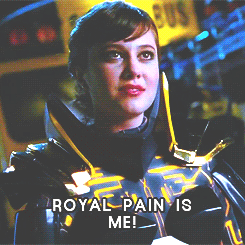 Second, it’s do whatever I can to not deliver that bad-guy backstory (which is, again, brief, just a lingering glance) through the bad guy. Which, yeah, tone will escape you from somewhat. The bad guy does just this in Sky High, right? And it completely works. But, it works there, I think, because it’s built into the big reveal. And you can only get away with a trick like that maybe once in a career, I suspect.
Second, it’s do whatever I can to not deliver that bad-guy backstory (which is, again, brief, just a lingering glance) through the bad guy. Which, yeah, tone will escape you from somewhat. The bad guy does just this in Sky High, right? And it completely works. But, it works there, I think, because it’s built into the big reveal. And you can only get away with a trick like that maybe once in a career, I suspect.
Be Footloose, I guess I’m saying. Sell as many copies as Red Dragon, definitely—somehow be as good as Thomas Harris, start a franchise while you’re at it—but do it with a bad guy like Reverend Moore, who’s plenty complicated, and has his own emotionally-satisfying arc, all that stuff that writing courses teach us is good and proper.
And, too, I always think it’s important to allow there to be Michael Myerses in the world:
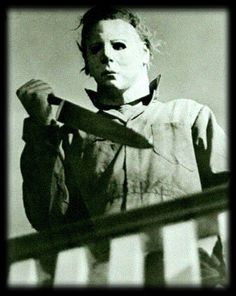
What turned Michael into who he already was at just six years old? Nothing. He was just born that way, no backstory, no grandma torturing him into the mask, none of that. He just was—much like Nix, from Lord of Illusions, who, as you’ll recall, just “wants to murder the world.” Who cares why. Knowing Nix’s motivations or desires or childhood or any of that, all that would do it water things down.
Or, let’s take it out of horror, even: the Joker, right? Where does the Joker get his power? It’s not the gadgets or the psychopathy or whatever’s in his head. It’s that his backstory, it’s always shifting, it’s never certain (okay: at least until The Killing Joke)—it’s always leaving open the distinct possibility that the Joker, man, he was born already messed-up, already looking for havoc to wreak. Him sometimes claiming this backstory, sometimes that one, that’s just him being aware that if people can explain him, they can then put him on a shelf, ignore him. Joker, though, he won’t be ignored. He doesn’t fit on any shelf.
Neither should your antagonist. Real evil, it never makes sense, it’s never excused. For the sake of your story, don’t pretend otherwise.
